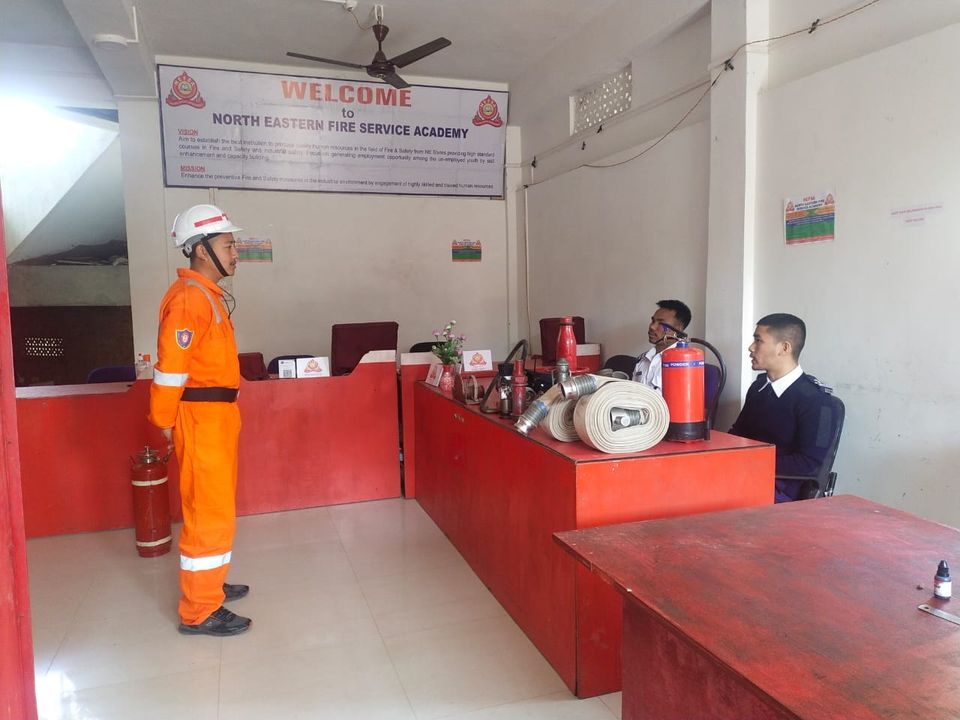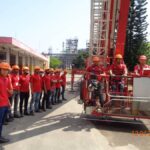Fire safety in industrial settings is not just a regulatory requirement; it’s a life-saving
necessity. Industries that handle hazardous materials, machinery, and large-scale production need to have robust fire safety
protocols in place to protect their workers, property, and the environment. NEFSA Fire Academy, with its specialized fire safety
training programs, provides the essential skills and knowledge required for maintaining safety in industrial environments.
lass=”yoast-text-mark” />>In this blog, we’ll dive into the importance of fire safety in industrial settings and how NEFSA prepares professionals to tackle fire-related emergencies effectively.
The Significance of Fire Safety in Industrial Environments
Industrial settings are often home to hazardous materials, large machines, electrical systems,
and flammable substances. Whether it’s a factory, refinery, warehouse, or power plant, the potential for fire outbreaks is always
present. According to the National Fire Protection Association (NFPA), industrial facilities are more likely to face fire hazards
due to the scale and nature of operations.
Here are some common fire hazards in industrial environments:
-
Flammable Chemicals: Factories dealing with chemicals, oils, and gases are
highly vulnerable to explosions and fires if proper safety measures aren’t followed. -
Electrical Systems: Poor wiring, malfunctioning equipment, or neglected
electrical safety can cause sparks that may lead to a fire. -
Improper Storage: Storing chemicals or flammable materials without following
safety guidelines can increase the chances of fires.
Having the right fire safety training is crucial in minimizing these risks and preventing
devastating losses.
Key Elements of Fire Safety in Industrial Settings
-
Fire Risk Assessment:
Before any safety procedures can be implemented, an industrial site must undergo a thorough fire risk assessment. This involves
identifying potential hazards, evaluating the risks associated with those hazards, and putting in place control measures to prevent
fires from starting or spreading. -
Fire Prevention Measures:
Fire prevention begins with proper planning. This includes ensuring that industrial equipment is maintained regularly,
implementing proper storage techniques for flammable materials, and adhering to electrical safety standards. Regular audits,
inspections, and maintaining a clean workspace free of unnecessary debris can significantly reduce fire risk. -
Fire Detection Systems:
Industrial settings must be equipped with advanced fire detection systems that can quickly identify the presence of smoke, heat,
or fire. These systems should be linked to alarm systems that notify everyone on the premises, enabling quick evacuation if
necessary. -
Emergency Response Plan:
A well-rehearsed emergency response plan is vital. This plan should outline evacuation procedures, the location of fire exits,
and the use of firefighting equipment. Employees should be trained to react swiftly to any fire-related emergencies, from activating
alarms to using fire extinguishers. -
Fire Extinguishers and Equipment:
Fire extinguishers, hoses, and sprinklers should be strategically placed throughout the industrial setting. Employees should be
trained in the correct use of each piece of equipment based on the type of fire they may encounter (e.g., electrical, chemical, or fuel-based fires). -
tart=”3521″ data-end=”3901″>Employee Fire Safety Training:
Industrial workers must undergo comprehensive fire safety training, covering everything from fire prevention to how to use<br />firefighting equipment. NEFSA Fire Academy offers tailored courses that prepare employees for real-world fire emergencies, ensuring that they have the confidence and knowledge to protect themselves and their colleagues.
How NEFSA Fire Academy Can Help
NEFSA Fire Academy is dedicated to providing high-quality fire safety training, designed
specifically for industrial settings. The academy’s programs cover a wide range of topics, from basic fire prevention techniques to advanced firefighting tactics.
Why Choose NEFSA Fire Academy for Industrial Fire Safety Training?
-
Expert Trainers:The academy is led by seasoned fire safety professionals
who have years of experience in industrial firefighting and safety protocols. -
Customized Training Programs: NEFSA offers industry-specific fire safety courses tailored to the unique needs of various sectors, including manufacturing, chemicals, oil, and gas industries.
-
Hands-on Training: With practical, hands-on training, NEFSA ensures that
participants get real-world experience in tackling fire-related emergencies. -
Up-to-date Practices: NEFSA keeps up with the latest fire safety technologies, techniques, and regulatory changes, ensuring that their training programs are always relevant.
Conclusion
In conclusion, fire safety in industrial settings is not something that can be overlooked.
>It requires a proactive approach that includes fire risk assessments, prevention measures, detection systems, emergency plans,
and most importantly, well-trained personnel. NEFSA Fire Academy is your partner in creating a safer industrial environment.
>Through professional fire safety training, NEFSA ensures that your workforce is equipped to handle any fire-related emergencies and prevent accidents before they happen.
Protect Your Industry. Protect Your Workforce. Choose NEFSA Fire Academy for Expert Fire Safety Training.
Contact us today to know more about admissions, batch schedules, and course details.
Visit: www.nefsaindia.com
Location: Dibrugarh, Assam
For More Blogs:- Click here







